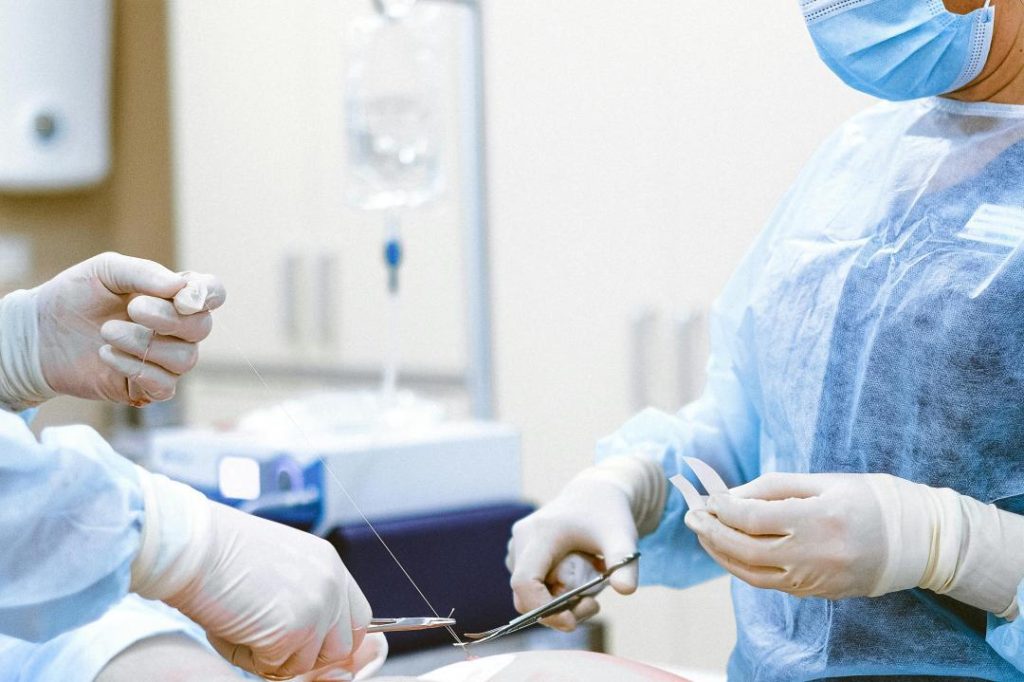
New Study Shows Exercise Before Surgery Cuts Complications
When it comes to preparing for surgery, many of us focus on logistics such as scheduling appointments, arranging transportation, and packing a hospital bag. However, a new study suggests that there is another crucial step we can take before going under the knife: exercising. The study, published in BMC Gastroenterology, found that prehabilitation – a combination of exercise, nutrition, and psychological support before surgery – can help reduce complications and speed up short-term recovery.
The study, which analyzed data from over 20 trials and 1,700 patients, found that prehabilitation is not only safe but also effective and well-accepted by patients. This is significant, as digestive cancer surgery is a complex and often invasive procedure that can have serious complications.
Prehabilitation, as the name suggests, is a process of preparing the body for surgery. It involves a combination of exercise, nutrition, and psychological support to improve overall physical and mental health before undergoing surgery. The goal is to enhance the body’s ability to recover from surgery, reduce the risk of complications, and improve overall outcomes.
The study found that prehabilitation was particularly effective in reducing complications in patients undergoing digestive cancer surgery. This includes procedures such as gastrectomy, pancreatectomy, and liver resection. By combining exercise, nutrition, and psychological support, patients were able to improve their overall fitness and reduce their risk of post-operative complications.
So, what exactly does prehabilitation entail? The study suggests that it typically involves a combination of the following:
- Exercise: This can include aerobic exercises such as walking, cycling, or swimming, as well as strength training and flexibility exercises. The goal is to improve overall physical fitness and reduce the risk of post-operative complications.
- Nutrition: A healthy and balanced diet is essential for optimal recovery. Patients may work with a registered dietitian or nutritionist to develop a personalized meal plan that meets their specific needs and promotes healing.
- Psychological support: Surgery can be a stressful and anxiety-provoking experience. Prehabilitation can involve psychological support, such as counseling or therapy, to help patients manage their anxiety and stress levels.
The benefits of prehabilitation are numerous. By improving overall physical and mental health before surgery, patients can reduce their risk of post-operative complications, such as pneumonia, blood clots, and wound infections. Prehabilitation can also help patients recover faster and return to their normal activities sooner.
In addition, prehabilitation can help patients develop healthy habits and behaviors that can be maintained after surgery. This can include following a healthy diet, exercising regularly, and managing stress levels. By adopting these habits, patients can improve their overall health and reduce their risk of chronic diseases, such as heart disease and diabetes.
While prehabilitation is not a new concept, the study’s findings suggest that it is a valuable step in preparing for surgery. In fact, the study’s authors suggest that prehabilitation should be considered a standard of care for patients undergoing digestive cancer surgery.
The study’s findings are significant, as digestive cancer surgery is a complex and often invasive procedure that can have serious complications. By combining exercise, nutrition, and psychological support before surgery, patients can improve their overall health and reduce their risk of post-operative complications.
In conclusion, the study’s findings suggest that prehabilitation is a valuable step in preparing for surgery. By combining exercise, nutrition, and psychological support before surgery, patients can improve their overall health, reduce their risk of post-operative complications, and speed up their recovery.
As we prepare for surgery, it is essential to consider prehabilitation as an important part of the process. By taking the time to exercise, eat a healthy diet, and manage our stress levels, we can improve our overall health and reduce our risk of complications. By doing so, we can ensure a smoother and safer recovery, and return to our normal activities sooner.
Source: What is Prehabilitation and Why it Matters Before Cancer Surgery (https://thepfc.club/blogs/news/what-is-prehabilitation-and-why-it-matters-before-cancer-surgery)






